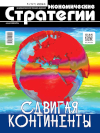DOI: 10.33917/es-1.199.2025.66-73
The article examines the change in ideas about technology from 1772, when Johann Beckmann introduced the term “technology” into scientific use, to the present day. A modern approach to forecasting the technology evolution as a certain implementation of a complex self-developing system is proposed. Comparative analysis of technological and biological evolution is carried out. The ar ticle examines a systemic approach to expert forecasting technology as a separate modern direction, within the framework of which the author proposes its hypershell and dwells on the systemic constituent elements of this shell. Eight directions for future research in the field of technology forecasting are examined.
References:
1. Demidchenko V.V. Ponyatie politicheskikh tekhnologiy: sushchnost’, formy i vidy [Concept of Political Technologies: Nature, Forms and Types]. Vlast’, 2015, vyp. 12, pp. 140–142.
2. Kharichkin I.K. O ponyatii “politicheskie tekhnologii” [On the Concept of “Political Technologies”]. Vestnik universiteta, 2013, vyp. 8, pp. 75–78.
3. Lem S. Summa tekhnologiy [Sum of Technologies]. Moscow, Mir, 1968, 608 p.
4. Kul’turologiya. XX vek [Cultural Studies. 20th Century]: Entsiklopediya. Gl. red., sost. S.Ya. Levit. Saint Petersburg, Universitetskaya kniga, 1998, vol. 2: M – Ya. Vol. 2, 1998, 446 p.
5. Heidegger M. Die Frage nach der Technik. Die Kunste im technischen Zeitalter. München, 1954, S. 70–108.
6. Bol’shaya Rossiyskaya entsiklopediya [The Great Russian Encyclopedia]. V 30 t. Moscow, 2004.
7. Gibert P. Théologie en modernité et postmodernité. Recherches de Science Religieuse, 2004, no 3(3), pp. 341, 342.
8. Kononenko B.I. Bol’shoy tolkovyy slovar’ po kul’turologii [Big Explanatory Dictionary of Cultural Studies]. Moscow, Veche, 2003, 509 p.
9. Khorgan D. Profil’: neokhotnyy revolyutsioner [Profile: Reluctant Revolutionary]. Scientific American, 1991, vol. 264, no 5, pp. 40–49. Bibcode: 1991. SciAm. 264 e. 40H.16.
10. Traditsionnaya i sovremennaya tekhnologiya: Filos.-metodol. analiz [Traditional and Modern Technology: Philosophical and Methodological Analysis]. Moscow, IFRAN, 1998, 216 p.
11. Vig D.N. Technology, Philosophy and Politics. Technology and Politics. E. Kraft Michael and J. Vig Norman (eds.). Durham, NC, and London, Duke University Press, 1988, 356 p., pp. 7–15.
12. Kurdyumov S.P. Zakony evolyutsii i samoorganizatsii slozhnykh system [Laws of Evolution and Self-organization of Complex Systems]. Moscow, IPM, 1990, 45 p. Bibliogr.: pp. 36–45. (Preprint. In-t prikl. matematiki im. M.V. Keldysha AN SSSR, no 45.)
13. Shchedrovitskiy G.P. Filosofiya. Nauka. Metodologiya [Philosophy. Science. Methodology]. Moscow, 1997, 642 p.
14. Stepin V.S. Samorazvivayushchiesya sistemy i postneklassichekaya ratsional’nost’ [Self-developing Systems and Post-non-classical Rationality]. Voprosy filosofii, 2003, no 8, pp. 5–17.
15. Tekhnologiya kak vyzov vremeni (izuchenie, ponyatie i tipy tekhnologiy) [Technology as a Challenge of Time (Study, Concept and Types of Technologies)]. Philosophy and Cosmology, 2017, vol. 19, pp. 133–142.
















